第49章 Chapter 11(2)
The first three years of Mr.Browning's married life had been unproductive from a literary point of view.The realization and enjoyment of the new companionship,the duties as well as interests of the dual existence,and,lastly,the shock and pain of his mother's death,had absorbed his mental energies for the time being.But by the close of 1848he had prepared for publication in the following year a new edition of 'Paracelsus'and the 'Bells and Pomegranates'poems.The reprint was in two volumes,and the publishers were Messrs.Chapman and Hall;the system,maintained through Mr.Moxon,of publication at the author's expense,being abandoned by Mr.Browning when he left home.
Mrs.Browning writes of him on this occasion that he is paying 'peculiar attention to the objections made against certain obscurities.'
He himself prefaced the edition by these words:'Many of these pieces were out of print,the rest had been withdrawn from circulation,when the corrected edition,now submitted to the reader,was prepared.
The various Poems and Dramas have received the author's most careful revision.
December 1848.'
In 1850,in Florence,he wrote 'Christmas Eve and Easter Day';and in December 1851,in Paris,the essay on Shelley,to be prefixed to twenty-five supposed letters of that poet,published by Moxon in 1852.
The reading of this Essay might serve to correct the frequent misapprehension of Mr.Browning's religious views which has been based on the literal evidence of 'Christmas Eve',were it not that its companion poem has failed to do so;though the tendency of 'Easter Day'is as different from that of its precursor as their common Christianity admits.The balance of argument in 'Christmas Eve'is in favour of direct revelation of religious truth and prosaic certainty regarding it;while the 'Easter Day'vision makes a tentative and unresting attitude the first condition of the religious life;and if Mr.Browning has meant to say --as he so often did say --that religious certainties are required for the undeveloped mind,but that the growing religious intelligence walks best by a receding light,he denies the positive basis of Christian belief,and is no more orthodox in the one set of reflections than in the other.The spirit,however,of both poems is ascetic:for the first divorces religious worship from every appeal to the poetic sense;the second refuses to recognize,in poetry or art,or the attainments of the intellect,or even in the best human love,any practical correspondence with religion.
The dissertation on Shelley is,what 'Sordello'was,what its author's treatment of poets and poetry always must be --an indirect vindication of the conceptions of human life which 'Christmas Eve and Easter Day'condemns.This double poem stands indeed so much alone in Mr.Browning's work that we are tempted to ask ourselves to what circumstance or impulse,external or internal,it has been due;and we can only conjecture that the prolonged communion with a mind so spiritual as that of his wife,the special sympathies and differences which were elicited by it,may have quickened his religious imagination,while directing it towards doctrinal or controversial issues which it had not previously embraced.
The 'Essay'is a tribute to the genius of Shelley;it is also a justification of his life and character,as the balance of evidence then presented them to Mr.Browning's mind.It rests on a definition of the respective qualities of the objective and the subjective poet....While both,he says,are gifted with the fuller perception of nature and man,the one endeavours to 'reproduce things external (whether the phenomena of the scenic universe,or the manifested action of the human heart and brain)with an immediate reference,in every case,to the common eye and apprehension of his fellow-men,assumed capable of receiving and profiting by this reproduction'--the other 'is impelled to embody the thing he perceives,not so much with reference to the many below,as to the One above him,the supreme Intelligence which apprehends all things in their absolute truth,--an ultimate view ever aspired to,if but partially attained,by the poet's own soul.
Not what man sees,but what God sees --the 'Ideas'of Plato,seeds of creation lying burningly on the Divine Hand --it is toward these that he struggles.Not with the combination of humanity in action,but with the primal elements of humanity he has to do;and he digs where he stands,--preferring to seek them in his own soul as the nearest reflex of that absolute Mind,according to the intuitions of which he desires to perceive and speak.'
The objective poet is therefore a fashioner,the subjective is best described as a seer.The distinction repeats itself in the interest with which we study their respective lives.We are glad of the biography of the objective poet because it reveals to us the power by which he works;we desire still more that of the subjective poet,because it presents us with another aspect of the work itself.The poetry of such a one is an effluence much more than a production;it is 'the very radiance and aroma of his personality,projected from it but not separated.Therefore,in our approach to the poetry,we necessarily approach the personality of the poet;in apprehending it we apprehend him,and certainly we cannot love it without loving him.'
The reason of Mr.Browning's prolonged and instinctive reverence for Shelley is thus set forth in the opening pages of the Essay:
he recognized in his writings the quality of a 'subjective'poet;hence,as he understands the word,the evidence of a divinely inspired man.